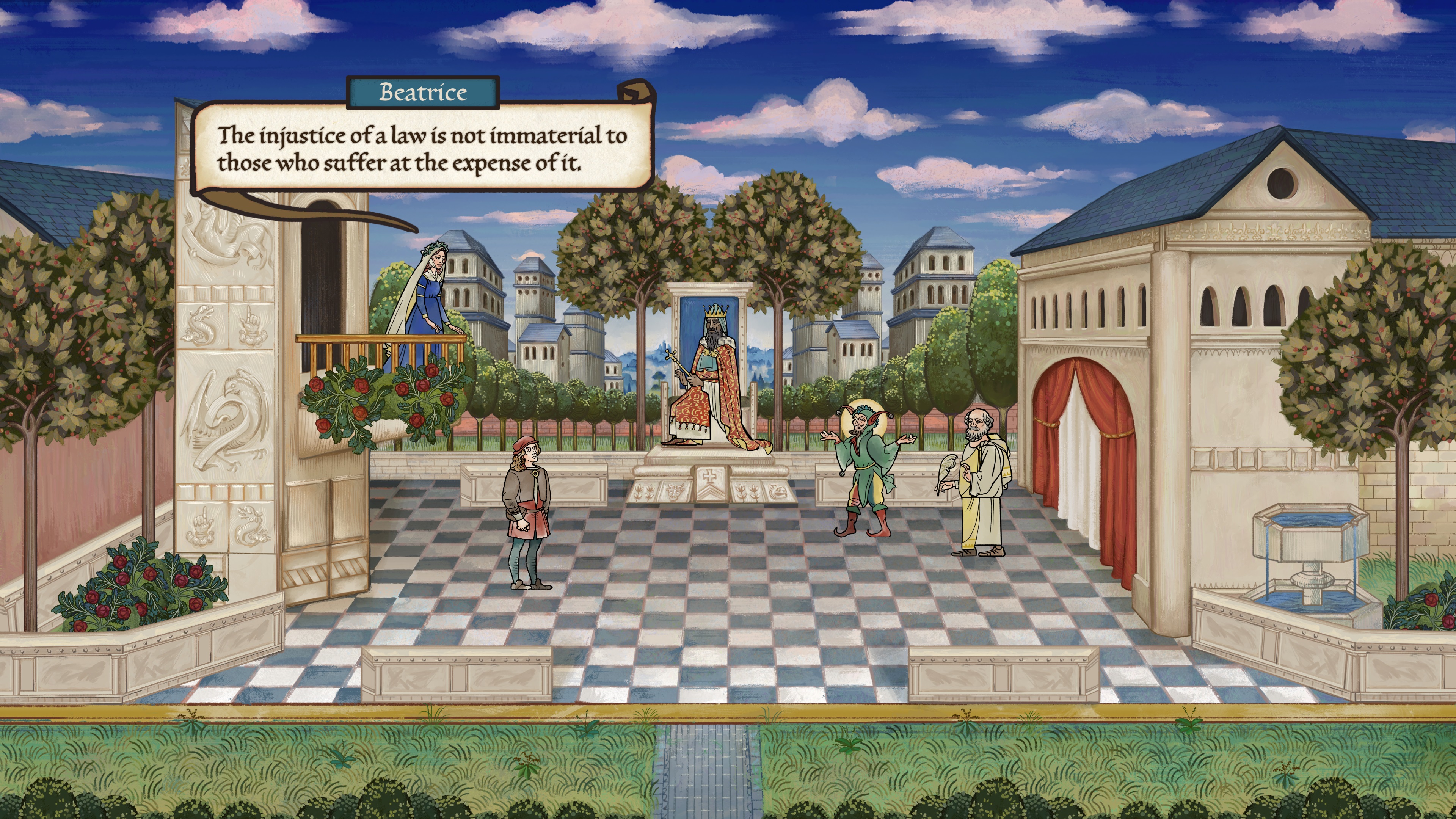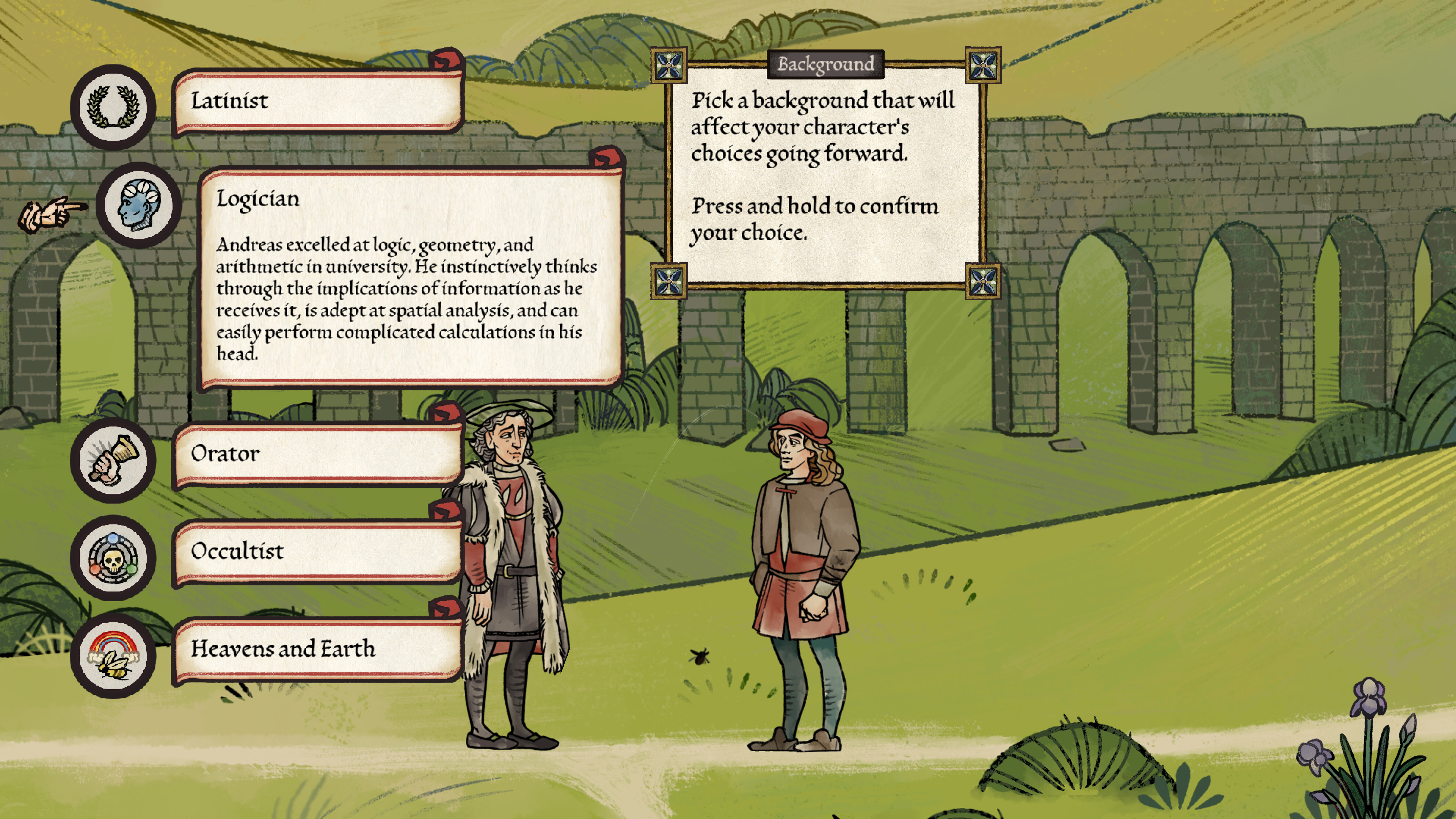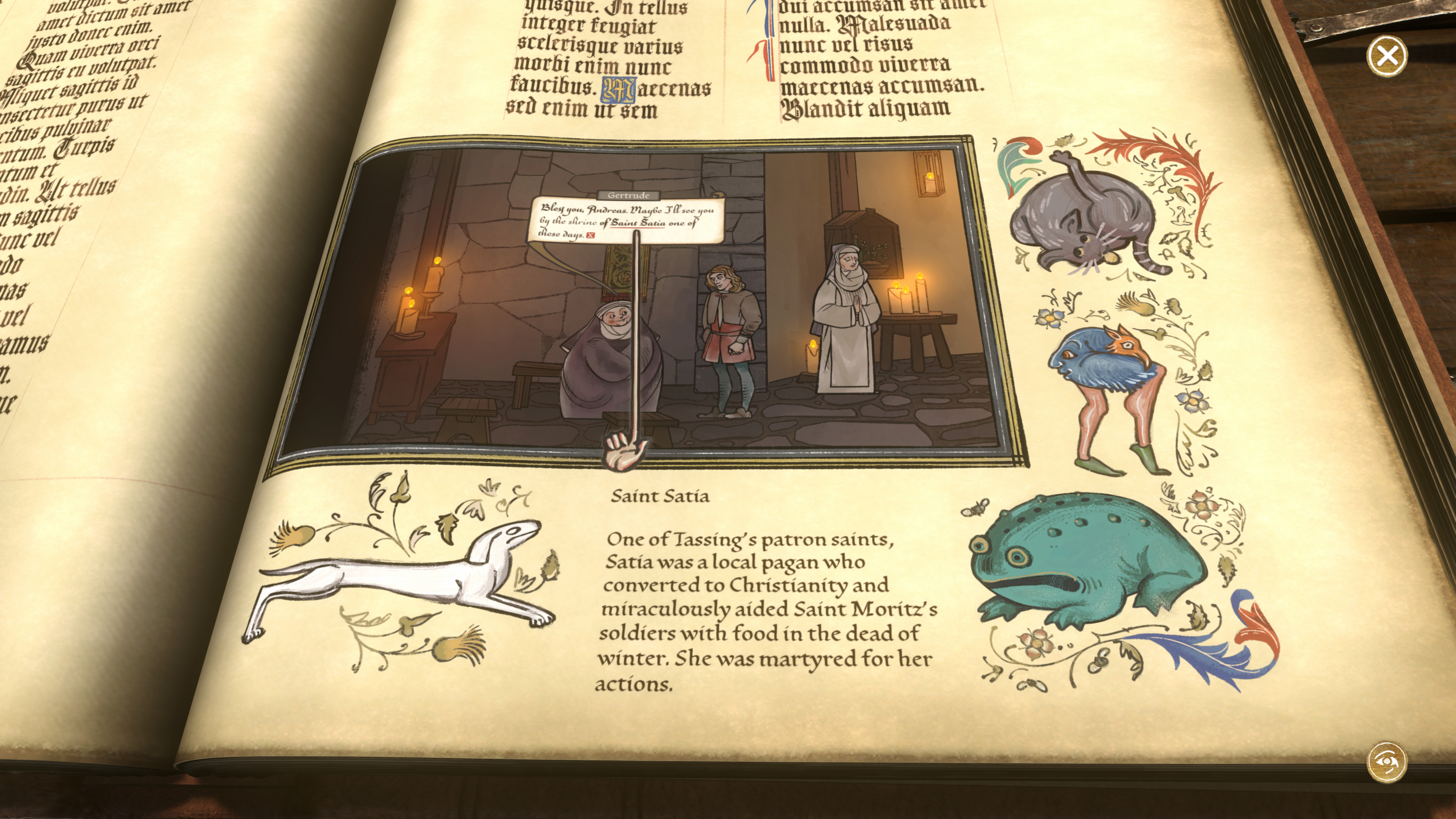Pentiment is the smartest game I’ve played in years
Pentiment is a medieval murder mystery with a lot of respect for its audience

Here at Tom’s Guide our expert editors are committed to bringing you the best news, reviews and guides to help you stay informed and ahead of the curve!
You are now subscribed
Your newsletter sign-up was successful
Want to add more newsletters?

Daily (Mon-Sun)
Tom's Guide Daily
Sign up to get the latest updates on all of your favorite content! From cutting-edge tech news and the hottest streaming buzz to unbeatable deals on the best products and in-depth reviews, we’ve got you covered.

Weekly on Thursday
Tom's AI Guide
Be AI savvy with your weekly newsletter summing up all the biggest AI news you need to know. Plus, analysis from our AI editor and tips on how to use the latest AI tools!

Weekly on Friday
Tom's iGuide
Unlock the vast world of Apple news straight to your inbox. With coverage on everything from exciting product launches to essential software updates, this is your go-to source for the latest updates on all the best Apple content.

Weekly on Monday
Tom's Streaming Guide
Our weekly newsletter is expertly crafted to immerse you in the world of streaming. Stay updated on the latest releases and our top recommendations across your favorite streaming platforms.
Join the club
Get full access to premium articles, exclusive features and a growing list of member rewards.
The very first scene in Pentiment takes place in the court of Prester John. In a lushly painted dream sequence, protagonist Andreas Maler partakes in a heady conversation with the presiding prester, as well as Saint Grobian, Socrates, and Beatrice — that would be Dante’s Beatrice from The Divine Comedy, which the game expects you to know.
The characters discuss the nature of religion, responsibility, truth and fantasy, all while looking like they stepped directly out from a medieval tapestry. Andreas awakens in the Holy Roman Empire of 1518, and sets off to illuminate manuscripts at one of the last remaining scriptoriums in Christendom.
If nothing else, it’s a far cry from God of War Ragnarök.
Pentiment is a point-and-click adventure game from Obsidian Entertainment, the first-party Microsoft developer behind hit RPGs such as Star Wars: Knights of the Old Republic II and Pillars of Eternity. Unlike the company’s other titles, Pentiment has no skill trees, party members or combat system. In fact, even calling it a point-and-click adventure game is a bit misleading, as there are almost no items to collect or puzzles to solve.
Instead, Pentiment distills what Obsidian does best down to its essence: strong dialogue and meaningful player choice. Believe it or not, this is more than enough to carry this charming medieval murder mystery. What really sells Pentiment, though, is the extraordinary amount of respect it has for its audience’s intelligence.
A knowledgeable audience

In Pentiment, you play as an artist named Andreas Maler, who’s taken up residence in the small German town of Tassing. After a grisly murder, suspicion falls on Andreas’ friend, the gentle monk Brother Piero. Since Andreas is an outsider to the insular community, he finds himself in a unique position to investigate impartially and clear Piero’s name. That’s not the entire game, but it is the basis for the substantial first act.
If the game’s introductory scene didn’t make it clear, Pentiment hits the ground running in terms of world history knowledge. There’s an in-game glossary you can consult if you want to know more about an obscure Catholic saint or the geography of late-medieval Germany, but these give you only brief descriptions. Otherwise, you have to know a thing or two about the state of medicine, law, mathematics, education and astronomy in the 16th century.
Get instant access to breaking news, the hottest reviews, great deals and helpful tips.
This attention to historical detail is evident right from the start, as you can customize Andreas’ background. I determined that my version of Andreas received an education in Flanders, and could speak passable French as a result. He was a trained logician, and also understood the basics of astronomy and naturalism. And he was primarily interested in Tassing for its vast repository of books.
While the game briefs you on the benefits that each background confers, it’s up to you to provide the historical context for each one. From my own studies, I knew that a medieval logician would also be an expert in mathematics. I knew that “natural sciences” and “natural magic” in this time period were one and the same. And I knew that astronomy was on the cusp of a revolution, thanks to the heliocentric theories of Nicolaus Copernicus. The game didn’t painstakingly explain each point to me; it gave me the basics and assumed that I either knew the rest, or wouldn’t mind looking it up.
There’s a perfect example of what Pentiment expects from its audience early on in Act I. Andreas meets a nobleman named Lorenz Rothvogel, who takes an instant liking to him as a fellow man of learning. Rothvogel discusses the controversial theology of Martin Luther, and asks for Andreas’ opinion. Later on, as the two eat supper with a group of monks in the local abbey, Rothvogel brings up Martin Luther again — and asks Andreas to weigh in.
In other words, Pentiment expects you, the player, to know:
a) Who Martin Luther was
b) What Martin Luther’s theological beliefs were
c) How an artist in the Holy Roman Empire might feel about those beliefs
d) How a nobleman in the Holy Roman Empire might feel about those beliefs
e) What the consequences of bringing up those beliefs in front of an abbot might be
There are no “wrong” dialogue choices. But as you can imagine, both Rothvogel and the abbot can react rather vehemently depending on what you say — or don’t say.
To be fair, you don’t have to be a medieval scholar to know any of those things. But I can imagine a lesser game, where Rothvogel or the abbot would first give you a long, expository lecture about “that upstart Martin Luther” and let you draw your own conclusions afterward. The Assassin’s Creed series, for example, does this a lot.
Points of reference

When I first saw trailers for Pentiment, I thought to myself, “Oh, a medieval murder mystery in an abbey. It’s like The Name of the Rose.”
Ultimately, Pentiment is an appealing game because it trusts its audience. It assumes that players are smart.
On the one hand, that’s not an incredibly difficult conclusion to draw. Like Umberto Eco’s 1983 postmodern mystery novel, Pentiment is also about an outsider in a medieval religious community, who investigates a murder and learns a lot about the political and cultural state of Europe in the process.
On the other hand, I was somewhat surprised that Obsidian considered this fairly highbrow text to be a common enough cultural touchstone for a mainstream video game — one that Microsoft has promoted as a major Xbox exclusive over the past few months, no less.
To oversimplify things quite a bit, our point of reference for most mainstream video games is Star Wars: an adolescent adventure narrative about the forces of good and evil. And there’s nothing wrong with that. I love adventure stories, and some games, such as the aforementioned God of War Ragnarök, can provide a more nuanced interpretation of the formula. (If you understandably feel the need to roll your eyes at comparing every piece of pop culture to Star Wars, then just pretend I said “monomyth” instead.) The fact that Pentiment uses The Name of the Rose as a starting point instead is inherently impressive.
Ultimately, Pentiment is an appealing game because it trusts its audience. It assumes that players are smart. They might not know everything that the game references (I certainly didn’t), but it trusts that they’re knowledgeable enough to know the basics, and curious enough to learn the rest. It’s not didactic, but it’s potentially quite educational just the same.
In other words, if Assassin’s Creed is medieval history as a blockbuster Hollywood film, then Pentiment is medieval history as a PBS documentary. It’s not quite as exciting, but potentially even more engrossing.
Pentiment isn’t perfect, and I’m actually not even sure it’s a great video game, as we traditionally rate them. You essentially just walk, talk and read, and some of the dialogue choices can feel a little limiting, since they don’t let you come up with any outside-the-box ideas. But Microsoft’s rallying cry over the last few years is that it wants the Xbox ecosystem to have a game for everyone. Pentiment makes good on that promise.

Marshall Honorof was a senior editor for Tom's Guide, overseeing the site's coverage of gaming hardware and software. He comes from a science writing background, having studied paleomammalogy, biological anthropology, and the history of science and technology. After hours, you can find him practicing taekwondo or doing deep dives on classic sci-fi.
 Club Benefits
Club Benefits










